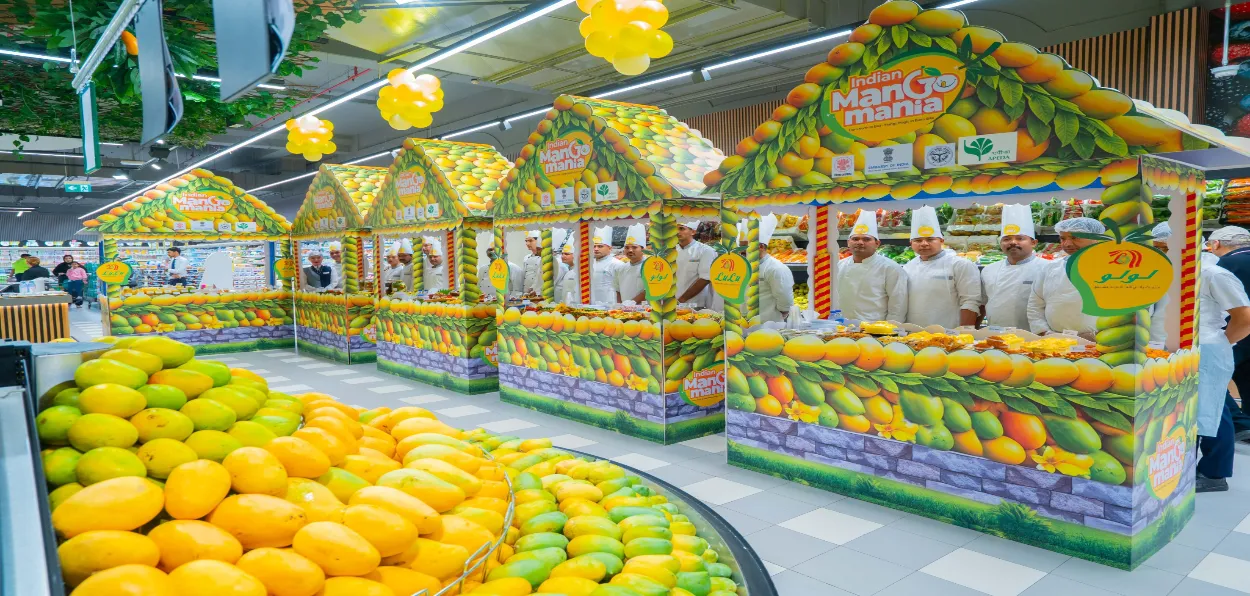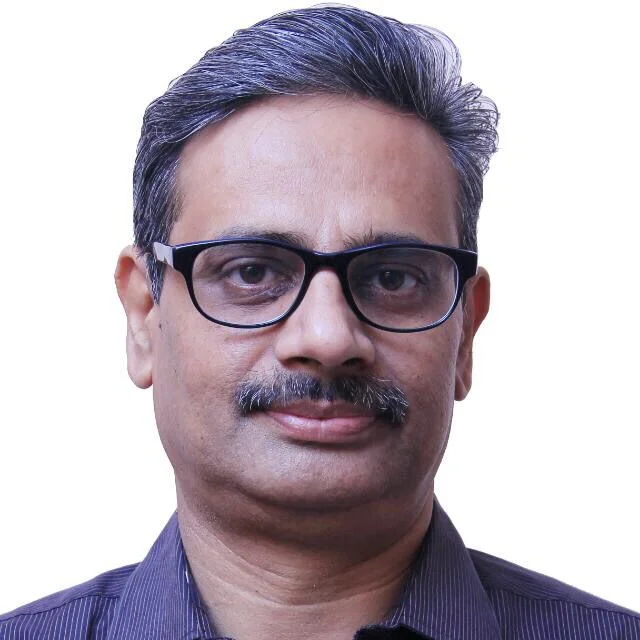
 Shankar Kumar
Shankar Kumar
As conflicts simmer across a large swath of the Arab world, and climate change-related challenges intensify each year, the region, which is home to 473 million people, is staring at a looming food crisis.
According to the reports of Food and Agriculture Organisation, UNICEF, and the World Food Programme, hunger and malnutrition have surged to critical levels, affecting more than 69 million people in the Arab world as of 2024. The region imported more than 50% of foodgrains last year. Experts have asked Arab nations to develop strategies to combat the food crisis.
Now the focus is on self-sufficiency in the scenario of global supply disruptions. Amid this, it should not be forgotten that India, which is separated from the Arab world by the Arabian Sea and the Persian Gulf, has been a reliable source of food supplies to many Arab countries like the UAE, Saudi Arabia, Oman, Kuwait, and Qatar for years.
India as a reliable foodgrain supplier
India’s food production touched 3539.59 lakh metric tonnes (2024-25). Of this, rice production was 1490.74 lakh metric tonnes, wheat 1175.07 lakh metric tonnes, maize production at 422.81 lakh metric tonnes, pulses 252.38 lakh metric tonnes, and oilseeds 426.09 lakh metric tonnes.
Today, India is a food-surplus nation---well-positioned to emerge as a reliable global supplier of foodgrains. It’s for this reason that the UAE has decided to set up a food corridor in partnership with India. This corridor envisages setting up food processing units and logistics for food parks. As much as $2 billion has been earmarked as initial funding for the project.
India joins Agriculture Innovation Mission for Climate - joint initiative of 🇺🇸 & 🇦🇪 which aims to address climate change and global hunger through increased investment in agricultural innovation for climate-smart agriculture and food systems. pic.twitter.com/FTZxXCEYbe
— India in UAE (@IndembAbuDhabi) February 22, 2023
On the other hand, for Saudi Arabia, achieving food security is a major goal, and, like the UAE, it sees India as a source for uninterrupted supplies of agricultural products. In 2021-22, Riyadh imported $1550.54 million worth of agricultural and allied commodities from India. In 2024-25, Riyadh imported $1.41 billion worth of cereals from India. However, this did not include the rice import bill. Saudi Arabia received $1.35 billion worth of rice from India in 2024-25.
Qatar’s National Vision 2030 seeks to enhance its food security in collaboration with India. During Qatari Amir Sheikh Tamim Bin Hamad Al-Thani’s visit to India in February, at the Joint Business Forum, both sides emphasised cooperation in several areas, including food security.
Kuwait no longer wants to remain complacent as its food security index is steadily declining. In 2023, as per the Economic Research Unit of the British ‘Economist’ group, Kuwait dropped 20 places on the Food Security Index.
Realising that it will have to ensure food security to feed its approximately 4.9 million people, Kuwait is looking at India for foodgrain supplies. Last year, India supplied $210.21 million worth of foodgrains to Kuwait, the Gulf country that is keen to invest in food parks in India.
Oman is building an agricultural city in its Saham region to promote sustainable agriculture to achieve its long-term food security goal. Since 2018, India has been offering help to Oman in developing its agriculture and fisheries sectors. The Gulf country also imports a substantial amount of foodgrains from India. Oman’s import basket of foodgrains, especially rice from India, increased by 13.21% from $1.05 billion in February 2024 to $1.19 billion in February 2025.

Chirag Paswan, Minister of Food Processing Industries visiting the stalls at the Gulf Food festival at Dubai in February
Among the Gulf Cooperation Council (GCC) countries, Bahrain is a trusted trade partner of India in the agriculture sector. On June 24-25, the Federation of Indian Export Organisation (FIEO) led a 35-member delegation from 24 companies in the food and agriculture sector to Bahrain.
Research-based collaboration between India and the Arab nations
The Giza-based Agricultural Research Centre (ARC) is working with the Indian Council of Agricultural Research (ICAR) to increase agricultural productivity and innovation for Egypt. They are collaborating in climate-smart agriculture, water management, and crop improvement.
In 2023, during Prime Minister Narendra Modi’s visit to Egypt, the two countries signed an MoU for cooperation in the field of agriculture and allied sectors. By conducting exchange programmes regularly among agricultural scientists, sharing best practices, and undertaking joint research, India is helping Egypt in improving its agricultural productivity.
Morocco-India’s agricultural partnership is robust. Under the 2018-2020 Work Plan, agriculture scientists from India and Morocco exchanged visits. Their joint research is focused on sustainable agriculture and climate-resilient farming. Additionally, they are also addressing challenges like water scarcity and soil degradation.
Similarly, Algeria, a country heavily dependent on food imports, has embraced the ICAR-backed international fellowship programme. This initiative allows Algerian scholars to pursue doctoral degrees in priority areas of agriculture and allied sciences in Indian agricultural universities. This collaboration not only supports capacity building in Algeria but also deepens bilateral relations through knowledge exchange and sustainable development in the agricultural sector.
In Tunisia, food security challenges have increased due to several factors, including climate change, political instability, and the COVID-19 pandemic. However, India is committed to improving Tunisia's food security situation. Under an agreement signed by India and Tunisia in October 2017, a soil, water, and tissue testing laboratory has been set up in Tunis by the Indian Institute of Soil Science.
Given that the Arab world grapples with a deepening food crisis driven by conflict, andclimate change, the urgency for sustainable and reliable food partnerships has never been greater.
ALSO READ: Muslims must take cue from Parsis to integrate with the national mainstream
In this context, India has emerged as a dependable ally, offering not only foodgrain supplies to bridge immediate gaps but also long-term solutions through agricultural research, education, and technology transfer.
